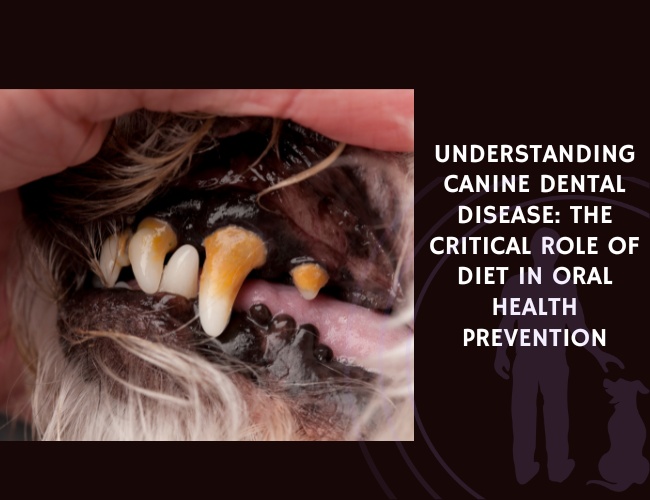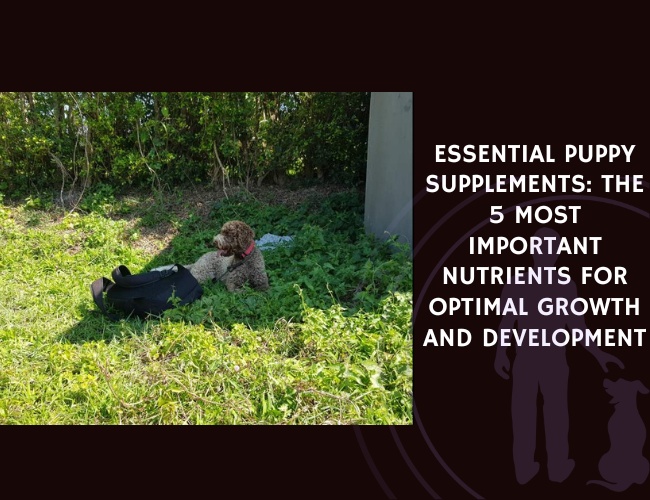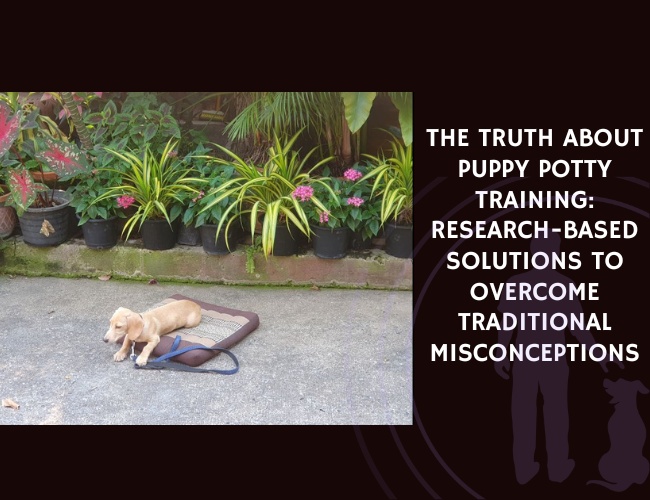Introduction: The Connection Between Diet and Canine Dental Health
How Nutrition Directly Impacts Oral Health in Dogs
Your dog’s diet is a significant factor in maintaining their oral health. Just like in humans, what your dog eats can either protect their teeth and gums or contribute to dental problems. Certain foods can help reduce plaque buildup and tartar formation, while others may accelerate these issues. For example, dry kibble has a natural abrasive effect that can help clean teeth, whereas wet food may stick to the teeth more, potentially leading to faster plaque accumulation.
Common Dental Issues Affected by Diet
Several dental problems in dogs are directly influenced by what they eat:
- Plaque Buildup: This sticky film of bacteria can harden into tartar if not regularly removed. Diets high in carbohydrates, especially those that contain sugars, can promote the rapid growth of plaque-forming bacteria.
- Tartar Formation: When plaque is not removed, it mineralizes into tartar, a hard substance that adheres strongly to the teeth and can only be removed by professional dental cleaning. Foods that are sticky or high in simple sugars can accelerate tartar formation.
- Gum Disease (Periodontal Disease): This condition starts with gingivitis, an inflammation of the gums caused by plaque and tartar accumulation. If left untreated, it can progress to more severe periodontal disease, leading to pain, infection, and even tooth loss.
Why Dental Health Is Crucial for Overall Canine Wellbeing
Good dental hygiene is vital for your dog’s overall health. Dental diseases can cause discomfort and pain, affecting your dog’s ability to eat and play. Moreover, bacteria from dental infections can enter the bloodstream, potentially leading to more serious conditions such as heart disease, kidney problems, and liver disease.
Beyond physical health, poor oral hygiene can also affect your dog’s quality of life. Pain and infection can make them less active and more irritable, impacting their mood and behavior.
By understanding and managing your dog’s diet, you can prevent many common dental issues and contribute to a happier, healthier life for your furry friend. Proper nutrition, combined with regular dental care routines, forms the foundation of effective oral health management for dogs.
Next, we’ll delve into the fascinating world of the canine oral microbiome and how diet can influence this delicate balance.
Understanding Canine Oral Microbiome
The Complex Ecosystem in a Dog’s Mouth
The canine oral microbiome is an intricate ecosystem of bacteria, fungi, and viruses that coexist within your dog’s mouth. It’s a delicate balance where both harmless and harmful microorganisms live together. Maintaining this balance is vital for your dog’s dental health.
How Diet Influences Oral Microbiome Balance
What your dog eats greatly affects this microbial environment. Saliva production, chewing actions, and the structural composition of food all play significant roles in mechanical cleaning of the teeth. For instance, frequent consumption of carbohydrates and sugars can tip this balance by fueling the growth of plaque-forming bacteria. Plaque is a sticky film that covers the teeth and can quickly harden into tartar if not removed. This biofilm creates an ideal habitat for harmful bacteria, increasing the risk of dental diseases like gingivitis and periodontal disease.
Microbiome Health and Dental Disease Prevention
A well-balanced oral microbiome helps prevent dental diseases. Certain nutrients and food textures can neutralize harmful bacteria and decrease inflammation, supporting an overall healthy oral environment. Enzymes in saliva, assisted by appropriate food types, break down bacteria and reduce their chances of forming harmful biofilms. For example:
- Enzymes like glucose oxidase and lactoperoxidase have antibacterial properties.
- Zinc supports the reduction of plaque and tartar formation.
- Vitamin C aids gum health and reduces inflammation.
- Seaweed (Ascophyllum nodosum) has been shown to inhibit plaque formation.
- Antioxidants combat oxidative stress and gum inflammation.
Integrating these elements into your dog’s diet can make a significant difference in maintaining a stable and healthy oral microbiome, thus protecting against dental issues.
By understanding this connection between your dog’s diet and their oral microbiome, you can make informed decisions that promote not just their teeth’s health but their overall well-being.
Common Dental Issues in Dogs
Periodontal Disease: The Leading Health Problem in Adult Dogs
One of the most prevalent dental problems in dogs is periodontal disease. This condition is characterized by inflammation and infection of the structures surrounding the teeth, including the gums, periodontal ligament, and alveolar bone. It is a progressive disease that can be significantly influenced by a dog’s diet.
From Plaque to Tartar to Gingivitis
The progression of periodontal disease begins with plaque, a sticky film of bacteria that forms on the teeth. When a dog consumes carbohydrates, particularly sugars, these bacteria feed on the residues and produce acids that can harm the teeth and gums. If plaque is not removed through regular brushing or chewing activities, it hardens into tartar, a calcified deposit that is much more difficult to remove.
Tartar buildup irritates the gums leading to gingivitis, an inflammation of the gum tissues. Gingivitis is the initial stage of periodontal disease and is often accompanied by red, swollen gums that may bleed easily. If left untreated, it can advance to periodontitis, where the support structures of the teeth are damaged, potentially leading to tooth loss.
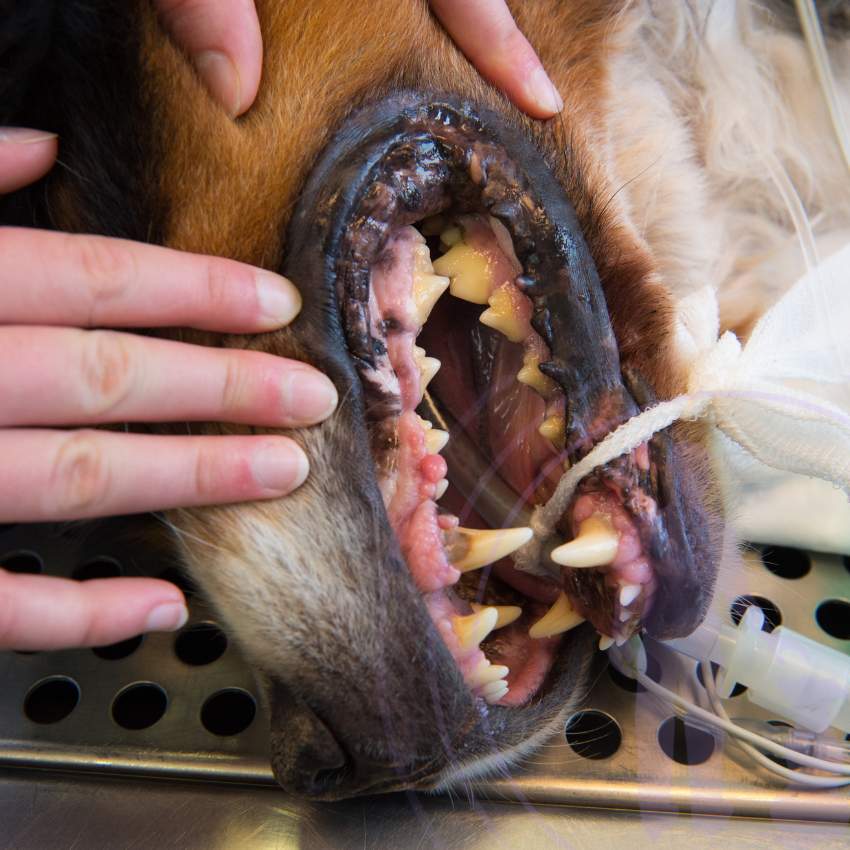
Diet and Its Correlation with Dental Problems
The type of diet your dog consumes plays a critical role in the development of dental issues. Different diets correlate with varying rates of plaque and tartar accumulation:
- Dry Kibble: Generally, dry kibble diets are known to cause lower rates of plaque and tartar formation compared to wet food. The abrasiveness of the kibble helps in mechanically cleaning the teeth, though its effectiveness can vary based on kibble size and hardness.
- Wet Food: Diets that primarily consist of wet or canned food tend to have higher rates of plaque development. The softer texture and higher carbohydrate content make wet food more likely to stick to the teeth and promote bacterial growth.
- Raw Diets: The impact of raw diets on dental health can be variable. While raw bones can help mechanically clean teeth, there are risks of fractures or infections.
- Homemade Diets: The effectiveness of homemade diets in preventing dental disease also varies. It largely depends on the ingredients and their ability to provide mechanical cleaning and proper nutrition.
Conclusion
Understanding the critical role of diet in canine dental health can help in preventing serious dental issues like periodontal disease. By choosing the appropriate type of food and incorporating daily preventive care, you can ensure your dog’s teeth and gums remain healthy. Additionally, regularly scheduled veterinary checkups are essential for early detection and management of dental problems.
Regular monitoring and adjusting of your dog’s diet can provide substantial benefits in maintaining optimal oral health, showcasing the significant impact that nutrition has on a dog’s overall wellbeing.
Comparing Food Types: Impact on Dental Health
When it comes to canine dental health, the type of food you choose for your dog can make a significant difference. Diets not only affect the balance of the oral microbiome but also play a key role in preventing common dental issues like plaque buildup and gum disease. Let’s delve into how different types of dog food impact your furry friend’s oral health.
Dry Kibble vs. Wet Food
Dry kibble is a popular choice among pet owners, and for good reasons. Its abrasive texture helps in the mechanical cleaning of teeth, which can reduce plaque buildup. The hard nature of kibble means that your dog needs to chew more, which assists in scraping off plaque and tartar. In contrast, wet food is known for its higher moisture content and palatability. However, this softer consistency can contribute to faster plaque formation, as it tends to stick to teeth more easily. Studies suggest that dry kibble is generally more effective at maintaining dental hygiene compared to wet food.
Raw and Homemade Diets
Raw and homemade diets have gained popularity for various health benefits, but their impact on dental health can be variable. Raw diets often include bones, which can help in mechanically cleaning the teeth. However, not all raw bones are safe, and there is a risk of tooth fractures. Homemade diets can be nutritious, but their effectiveness in oral health largely depends on their texture and consistency. Preparing these diets can be time-consuming and requires a careful balance of nutrients to ensure they support dental health.
Raw bones, dental chews, and cartilage can provide mechanical cleaning benefits by scraping away plaque and tartar. However, it’s important to be cautious about the hardness of these treats. Hard chews can cause tooth fractures, making it crucial to choose appropriate options for your dog’s size and chewing habits.
Food Texture and Mechanical Cleaning
The texture and consistency of your dog’s food can significantly influence its oral health. Foods that are harder and require more chewing are better at mechanically cleaning the teeth. This is why dry kibble is often recommended over softer options like canned food. When it comes to chews and treats, opting for products approved by the Veterinary Oral Health Council (VOHC) can ensure that they meet safety and efficacy standards.
By understanding the effects of different food types on dental health, you can make more informed choices for your dog’s diet. A balance of mechanical cleaning and nutritional value is essential for maintaining optimal canine oral hygiene. Regular dental care, combined with the right diet, forms the foundation of a healthy mouth.
Maintaining your dog’s dental health is a multifaceted approach. The next step is to include specific functional ingredients in their diet that support overall oral health.
Functional Ingredients That Support Oral Health
Beneficial Ingredients Overview
When it comes to maintaining your dog’s oral health, certain ingredients in their diet can play a crucial role. These functional ingredients—enzymes, zinc, vitamin C, seaweed, and antioxidants—not only support gum health but also help in combating bacteria and reducing inflammation. Let’s dive into how each of these components helps and the current state of research behind them.
Enzymes: Natural Bacteria Fighters
Enzymes such as glucose oxidase and lactoperoxidase are essential in reducing harmful oral bacteria. These enzymes work by breaking down bacterial cell walls, effectively minimizing the bacterial population in your dog’s mouth. This reduction is significant for preventing the early stages of periodontal disease, particularly the buildup of plaque, which can lead to tartar formation and gum disease as discussed in.
Zinc: The Plaque and Tartar Combatant
Zinc plays a dual role in canine dental health. It helps to combat plaque by inhibiting the production of biofilms—collections of microorganisms that adhere to the teeth. It also works to prevent tartar formation. By supporting natural defenses against these common dental issues, zinc can significantly improve your pet’s oral health.
Vitamin C: Supporting Gum Health
Vitamin C is well-known for its role in supporting the immune system, but its benefits extend to dental health as well. It reduces inflammation and strengthens the connective tissues in the gums, which can help fend off gum disease. Consistent intake of Vitamin C helps in keeping the gums healthy and preventing gingivitis.
Seaweed: A Natural Inhibitor
Seaweed, particularly Ascophyllum nodosum, has shown promise in inhibiting plaque formation. Studies suggest that this particular type of seaweed can help to reduce existing plaque, further preventing the progression to tartar and subsequent gum disease. This natural ingredient can be especially beneficial when included as a supplement in your dog’s diet.
Antioxidants: Combating Oxidative Stress
Oxidative stress and inflammation are significant concerns in the context of dental health. Antioxidants like those found in various fruits and vegetables are effective in reducing this stress and inflammation in the gums. They work by neutralizing free radicals, which can contribute to cellular damage and inflammatory responses.
Current Research Status
While the potential benefits of these ingredients are clear, it’s essential to note that much of the existing research has focused on human and general animal studies. Canine-specific studies are still relatively limited, and further research is necessary to fully understand the long-term efficacy and optimal formulations for these functional ingredients in dog diets.
Transitioning Forward
Understanding and integrating these functional ingredients into your dog’s diet can make a significant difference in their dental health. However, it’s also crucial to consider the broader context of their diet and overall health practices. Stay tuned as we explore other aspects of maintaining optimal dental hygiene and the benefits of specialized dental diets and prescription foods.
By incorporating these powerful ingredients and maintaining a balanced diet, you can help ensure your dog enjoys better oral health and thrives overall.
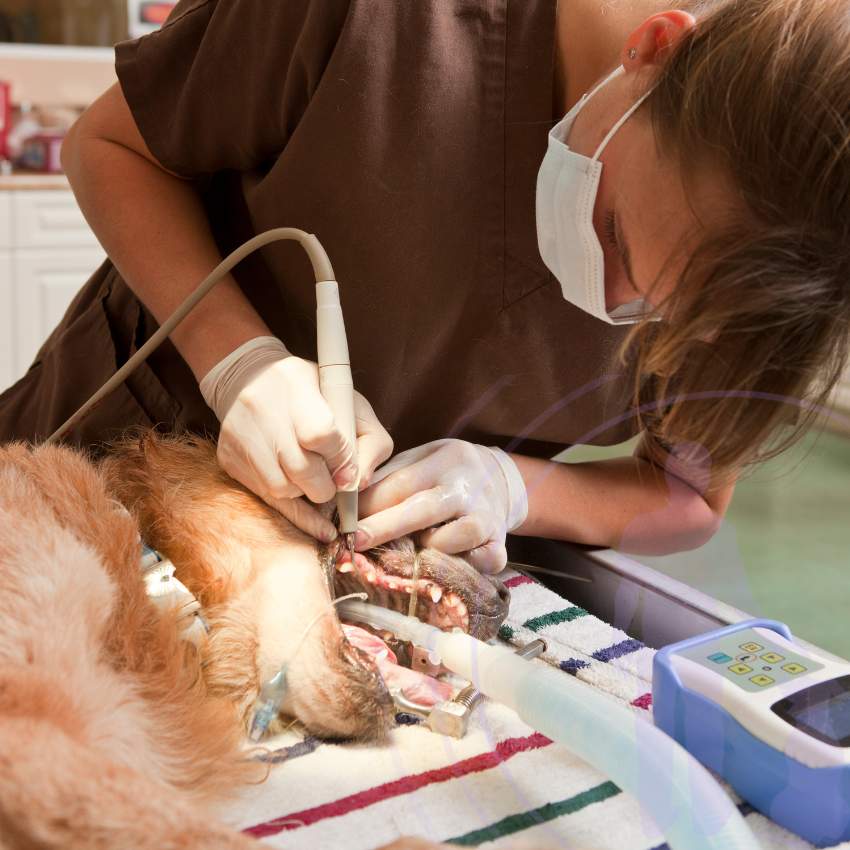
Specialized Dental Diets and Prescription Foods
Formulating Veterinary Dental Diets
Veterinary dental diets, are specifically designed to address oral health challenges in dogs. These diets are crafted with meticulous attention to the ingredients and textural properties that promote dental hygiene. The formulations incorporate:
- Abrasive Textures: These textures help mechanically clean the dog’s teeth during chewing. The kibble is often larger and harder, ensuring more abrasion against the teeth, reducing plaque buildup.
- pH Control: Maintaining a favorable oral pH is crucial. Ingredients in these diets help create an environment that is less conducive to bacterial growth, thereby preventing tartar formation.
- Microbial Management: Specific ingredients are included to manage harmful oral bacteria, promoting a healthier balance within the canine oral microbiome.
Mechanisms of Action
The specialized formulations work through several mechanisms to enhance dental health:
Abrasive Textures
The physical attribute of the kibble plays a significant role in dental care. When dogs chew, the abrasive surfaces help scrape away plaque from their teeth, effectively performing a mechanical cleaning action. Research has shown that these abrasive textures can significantly reduce plaque and tartar accumulation.
pH Control
Controlling the acidity level in a dog’s mouth is essential for inhibiting bacterial growth. Ingredients that balance oral pH contribute to a less hospitable environment for plaque-forming bacteria. This contrasts sharply with diets high in carbohydrates and sugars, which tend to lower pH and encourage harmful bacteria proliferation.
Microbial Management
Ensuring the health of the dog’s oral microbiome requires managing the bacteria population effectively. By incorporating functional ingredients like zinc and antioxidants, these diets help reduce inflammation and support gum health. The microbial management aspect ensures a balanced ecosystem, which is crucial for preventing periodontal disease.
Effectiveness and Breed Considerations
Clinical Trials
The effectiveness of these specialized diets is backed by clinical trials. Studies indicate measurable improvements in dental health, including significant reductions in plaque and gingivitis. However, outcomes can vary based on the dog’s breed, age, and initial dental condition.
Veterinary dentists and canine nutritionists estimate that while all breeds benefit from dental diets, specific formulations may be more effective for particular breeds with genetic predispositions to dental issues.
Insights from Studies
Research highlights the necessity for breed-specific considerations. Certain dog breeds may have unique dental health requirements due to differences in jaw structure and tooth alignment, necessitating tailored dietary solutions.
Transitioning to Comprehensive Dental Care
Effective oral health care for dogs requires integrating these specialized diets with daily routines, such as regular brushing and professional veterinary checkups. Combining optimal nutrition with proper dental care routines will pave the way for enhanced canine dental health.
The chapter has now concluded, providing you with useful information about specialized dental diets and prescription foods for dogs, focusing on their formulation, mechanisms of action, effectiveness, and breed considerations.
Natural Chews, Bones, and Dental Treats
Benefits of Raw Bones, Dental Chews, and Cartilage for Mechanical Cleaning
Natural chews, such as raw bones, dental chews, and cartilage, play an important role in maintaining your dog’s dental hygiene. These items provide a mechanical cleaning benefit, which helps scrape plaque and food debris off the surface of your dog’s teeth. When dogs chew on these harder substances, it stimulates saliva production, which is essential for neutralizing harmful bacteria and maintaining a balanced oral microbiome.
Chewing on raw bones and cartilage is also engaging for dogs, reducing boredom and anxiety. Plus, it imitates the natural chewing behavior that wild dogs exhibit, contributing to better overall oral health.
VOHC Approved Products and Their Testing Standards
The Veterinary Oral Health Council (VOHC) endorses specific dental products that meet rigorous testing standards for efficacy and safety. VOHC-approved dental chews have undergone scientific trials to verify their ability to reduce plaque and tartar build-up effectively. Look for the VOHC seal when purchasing dental products for your dog to ensure you’re providing a beneficial and safe option for their oral care.
VOHC testing standards are stringent; they assess both the physical and biochemical impact of the products on canine dental health, including the reduction of plaque formation, control of oral bacteria, and maintenance of gum health.
Risks Associated with Hard Chews and How to Select Appropriate Options
While raw bones and hard chews can be beneficial, they also pose risks, particularly the chance of tooth fractures. Chewing on overly hard substances may cause fractures or excessive wear to your dog’s teeth. Therefore, it’s crucial to select chews that balance hardness with safety.
Here are some tips for selecting safe chews:
- Avoid excessively hard bones, such as femur bones, and antlers that can break teeth. Instead, opt for softer raw bones, like knuckle bones.
- Choose chews designed specifically for dental health and endorsed by VOHC.
- Monitor your dog while chewing to prevent them from swallowing large chunks, which can pose choking hazards or lead to digestive problems.
Selecting appropriate chews is vital not only for ensuring safety but also for enhancing your dog’s dental health.
By incorporating natural chews, VOHC-approved dental treats, and considering the risks associated with hard chews, you contribute significantly to your dog’s oral hygiene. This creates a well-rounded approach to maintaining dental health, supporting their overall well-being.

Preventive Strategies and Optimal Feeding Practices
Feeding Frequency and Methods
Feeding practices play a critical role in maintaining your dog’s oral health. Scheduled feeding can be more beneficial than free-feeding, as it helps control plaque accumulation. When dogs have access to food at all times, they may snack frequently, increasing the risk of food particles lingering in the mouth and promoting plaque formation. Scheduled feeding, on the other hand, allows for better control of food intake and ensures teeth get a break between meals, reducing the chances of persistent plaque buildup.
Avoiding Problematic Foods
Certain foods can be detrimental to your dog’s dental health, and avoiding them is crucial. Sugary treats and table scraps are particularly harmful. Sugar fuels the growth of plaque-forming bacteria, and table scraps often contain unhealthy fats and sugars that can stick to teeth, exacerbating oral health problems. Opt for treats specifically designed to promote dental health, with ingredients that help clean teeth and gums.
Integrating Dietary Approaches with Preventive Measures
A comprehensive approach to oral health combines optimal nutrition with other preventive measures. Regular tooth brushing is one of the most effective ways to maintain clean teeth and prevent dental disease. Using toothpaste formulated for dogs can enhance the process. Water additives, such as enzymatic solutions, can also help reduce plaque and tartar buildup by improving oral hygiene in between brushings.
Additionally, routine veterinary checkups are essential. These checkups can help identify any early signs of dental disease, allowing for prompt intervention and management. By combining these preventive strategies, you can maximize the benefits of a healthy diet and maintain your dog’s optimal oral health for years to come.
Remember, a well-rounded approach to dental health will not only improve your dog’s mouth but also support their overall wellbeing.
Future Innovations in Canine Dental Nutrition
Probiotic-Based Dental Diets and Oral Microbiome Modulation
The future of canine dental nutrition is looking increasingly dynamic as researchers explore the potential of probiotic-based diets. Probiotics are beneficial bacteria that, when ingested, can positively influence the gut and oral microbiomes. Emerging research suggests that by introducing these beneficial bacteria into dog diets, we can potentially modulate the oral microbiome, leading to a reduction in harmful bacteria and promoting oral health. Regular inclusion of probiotics in canine diets may help prevent plaque formation, reduce inflammation, and promote overall gum health.
Natural Antimicrobials and Herbal Supplements
Another promising area in canine dental nutrition involves natural antimicrobials and herbal supplements. Ingredients like parsley, spirulina, and echinacea are known for their antimicrobial properties and have shown potential in maintaining oral health by reducing bacterial load. These natural solutions offer a holistic approach to dental care, aiming to reduce the reliance on synthetic additives and antibiotics. They work synergistically to support the immune system, combat oral bacteria, and minimize inflammation, creating a healthier oral environment for dogs.
Personalized Nutrition Approaches
Every dog is unique, and personalized nutrition is the key to addressing individual oral health risk factors effectively. Future innovations look towards leveraging technology to assess each dog’s specific needs through genetic testing, microbiome analysis, and lifestyle evaluations. This personalized approach allows for the creation of custom dietary plans that target specific issues, such as susceptibility to plaque or gum disease. Tailoring diets based on these factors can optimize dental health, reduce the incidence of dental problems, and improve overall wellbeing.
Innovations in canine dental nutrition hold great promise in providing more targeted and effective solutions for maintaining oral health. Combining these advancements with regular dental practices will ensure our furry friends have healthy teeth and gums for years to come.
Conclusion: Creating a Comprehensive Dental Health Plan
Key Dietary Factors Influencing Canine Dental Health
Understanding and managing your dog’s diet is paramount to ensuring their overall dental health. Nutritional choices directly affect the balance of the oral microbiome, which in turn impacts the development of plaque, tartar, and periodontal disease. Here are some key dietary factors to consider:
- Food Types: Dry kibble has an abrasive texture that can mechanically clean teeth, reducing plaque buildup. Conversely, wet food can lead to quicker plaque formation due to its stickier consistency.
- Functional Ingredients: Ingredients like enzymes, zinc, vitamin C, seaweed, and antioxidants combat harmful bacteria, reduce inflammation, and support gum health.
- Natural Chews: Raw bones, cartilage, and dental chews can provide mechanical cleaning benefits. However, selecting the right chews is crucial to avoid tooth fractures.
Combining Optimal Nutrition with Daily Oral Care Routines
For optimal dental health, a multifaceted approach combining diet and daily care routines is essential. Here’s how you can achieve this:
- Balanced Diet: Ensure your dog’s diet includes food that supports dental health. Incorporate dry kibble for its mechanical cleaning benefits and supplement with functional ingredients.
- Scheduled Feeding: Avoid free-feeding and stick to scheduled feeding times. This reduces the chance of continuous plaque formation.
- Avoid Problematic Foods: Limit sugary treats and avoid giving your dog table scraps which can lead to dental issues.
- Daily Brushing: Regular brushing helps to remove plaque before it hardens into tartar. Use dog-specific toothpaste and brushes.
- Water Additives: Incorporate enzymatic water additives to help control oral bacteria throughout the day.
Importance of Regular Veterinary Checkups
Regular veterinary dental checkups are a vital part of maintaining your dog’s oral health. Veterinary professionals can:
- Conduct Cleanings and Exams: Professional cleanings remove tartar and plaque that regular brushing may miss. Exams can catch dental issues early.
- Provide Expert Advice: Veterinarians can recommend specific diets, chews, and care routines tailored to your dog’s unique needs.
- Monitor Progress: Routine visits help track your dog’s dental health progress and make necessary adjustments to their care plan.
By integrating a balanced diet with daily dental care routines and regular veterinary checkups, you can significantly improve your dog’s oral health and overall wellbeing. Remember, maintaining your dog’s dental health is not just about preventing bad breath—it’s about ensuring a happy, healthy life for your furry friend.

